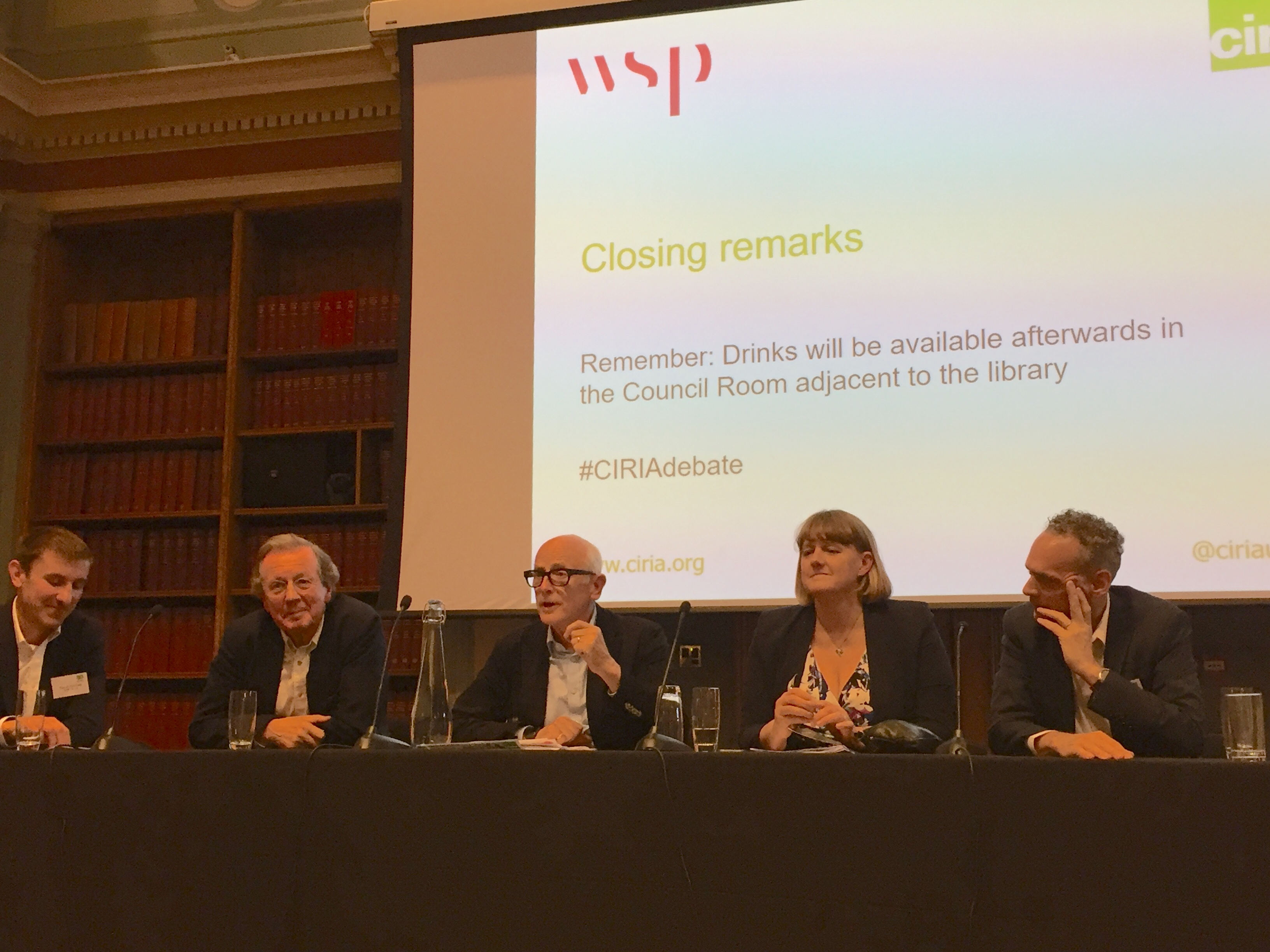The urban regeneration of existing cities
William Gates, CIRIA Network Manager, discusses some of the 21st Century challenges in regenerating our existing cities by balancing economic growth, environmental protection and social inclusion.
Urban regeneration is a key policy for the reshaping and revitalisation of the 21st century city; it was also the topic for CIRIA’s third annual debate held at the Royal Society of Chemistry on a very warm summer evening last month. This blog provides a brief overview of some of the key points covered during a lively discussion.

L-R: David Symons, George Ferguson, Peter Murray, Louise Brook-Smith, Steffen Lehmann. Credit: CIRIA
Regeneration is a key component for rebuilding the economic base of communities. Some of the questions covered during the evening included: What makes for successful regeneration schemes? How do you encourage policies that deal with growth? How do you address issues around density, and public space? How do you create ‘good’ growth over time? At the same time how do you overcome some of the negative overtones that regeneration has come to represent for some people, particularly on estate regeneration schemes?
Dr Steffen Lehmann, University of Portsmouth, reinforced the point that we must consider the regeneration of the existing city to be much more important than dreaming up new cities. A city is a centre of consumption and always in transition, but compact, mixed use and walkable cities are definitely the way forward. He suggested that improving public space is a key factor in successful urban regeneration projects. Improving public space creates lots of benefits; it can improve health and wellbeing, it can create more attractive places that can in turn attract talented and skilled workers, as well as bringing well documented social benefits. Dr Lehmann suggested that urban policies are in need of renewal because many were written when less was known about the impacts of climate change and we haven’t gone far enough to address issues around car dependency in cities. There is also a need for better data and greater collaboration between academia, cities governments, businesses, residents and the not-for-profit sector.
Car dependency was definitely a theme for the evening, and it is an interesting thought that fuel efficient and driverless cars will not make traffic jams go away. All the speakers touched on examples of negative approaches to regeneration; this included singular approaches to housing, the over use of spectacular architecture, the commercialisation of public and private space and rising land values all reducing the social diversity of cities. The speakers agreed that gentrification can be a danger because it can lead to unaffordable price rises for existing residents therefore reducing diversity and social diversity is a key component of a healthy city.
An interesting proposition came from George Ferguson, former mayor of Bristol, who made the case for 10-minute neighbourhoods - the idea being that education, health, purchasing, living and working can be reached without the ownership of a car within ten minutes. He argued that current regulations can lead to bland neighbourhoods, and so to achieve his vision it would require breaking lots of current established regeneration norms. George suggested that high density can be achieved without the need for high buildings – perhaps through narrower streets that encourage people to walk rather than drive.
David Symons from WSP drew on three points from WSP’s Future Ready work
- Regeneration is there for the long term
- The future will be different from today
- Design for this future as well as today
Given the recent heatwave in the UK, David asked us to imagine a 40 degree London – how would we feel and would the city cope? Although that is a slightly depressing thought, he suggested that modern engineers have a great opportunity to overcome some of these great challenges by thinking differently about building and street design. New regeneration schemes need to be ready for the future as well as today.
CIRIA members can listen to the speakers opening remarks here.